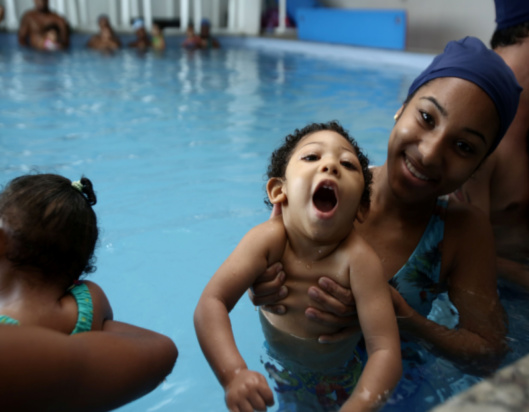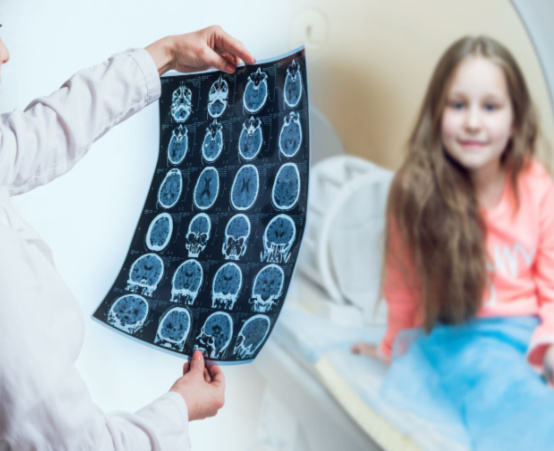Brain malformations

Brain malformations are conditions where the brain does not form properly. Most begin long before a baby is born.
Children with brain malformations have parts of the brain that are abnormally sized, missing or not fully developed. Malformations usually happen when genetic or environmental factors affect the baby’s developing brain in the womb.
Brain malformations can lead to developmental problems and sometimes cause cerebral palsy, epilepsy and developmental delays.
The resulting problems are varied and require ongoing assessments. Some complications only develop over time and for some children symptoms improve.
Diagnostic tools include magnetic resonance imaging (MRI) and computed tomography (CT) scans.
One common malformation is agenesis of the corpus callosum. This occurs when the brain’s two halves don’t join as they should due to the partial or complete absence of the corpus callosum which normally connects the halves, delivering messages from one to the other.

Who does it affect?
Who does it affect?
- Birth defects of the brain are generally not more prevalent in one gender.
- Agenesis of the corpus callosum is a complex disorder associated with intellectual disability, developmental delay and seizures. Some studies suggest it occurs in up to seven in every 4,000 live births.
- Agenesis (partial or complete absence) of the corpus callosum affects three to five per cent of those assessed for a neurodevelopmental disorder. Neurodevelopmental disorders are conditions that affect how the brain functions including autism, ADHD, learning difficulties, schizophrenia and speech and language disorders.
Our brain malformation research
Our brain malformation research
Our research aims to understand the causes, outcomes and best treatments for these conditions. They include rare forms of brain malformation such as the bottom of sulcus dysplasia, focal cortical dysplasia, polymicrogyria and periventricular nodular heterotopia.The research involves brain imaging using MRI scans and searching for genes responsible by using advanced technologies that determine genetic make-up. We study outcomes and brain function using medical and psychological tests.
Our team works with other campus researchers in genetics, imaging, neuropsychology, clinical neurology and epilepsy surgery, and with national and international collaborators, to improve the lives of children with brain malformations.
Projects include:
- Determining how genes control corpus callosum development. Genes play a critical role in brain development but most that cause malformations remain unknown. This project also aims to identify genes responsible and provide insight into normal brain development.
- The Accelerated Gene Identification Program aims to identify disease-causing genes for genetic disorders in patients and families at The Royal Children’s Hospital which sees over 100 patients a year.
- The Clinical and Molecular Genetic Study of Autism Spectrum Disorders aims to identify genes that contribute to autism. We hope to provide treatments to mitigate or prevent challenging behavioural features associated with ASD.
Impacts of our research

Impacts of our research
- We have established a multidisciplinary clinical and laboratory research program at Murdoch Children's. This combination of researchers across multiple disciplines is essential to enable understanding of these conditions and translate results to child patients and their families.
- The program identifies changes in known genes and new genes that cause disorders. It has led to the discovery of more than 15 new genes for neurodevelopmental disorders. It has also provided an evidence base for improvements in the surgical treatment of drug-resistant epilepsies.
- Genetic diagnosis provides important information for prognosis and targeted treatments. It also enables genetic counselling of parents and the potential for prenatal testing of early embryos in IVF treatment to enable only unaffected embryos to be implanted.
- Our group’s studies aim to understand how and why the underlying disease occurs. They are an essential prerequisite for the development of treatment programs, prevention and onset-delay strategies for brain and mind disorders.
Our vision
Our vision
Our aim is to improve the lives of children with brain malformations.
We are working towards this by researching and better understanding the genetic and environmental causes, outcomes and best treatments for these conditions. Main goals include trying to reduce impacts and prevent conditions, possibly with gene technology.



